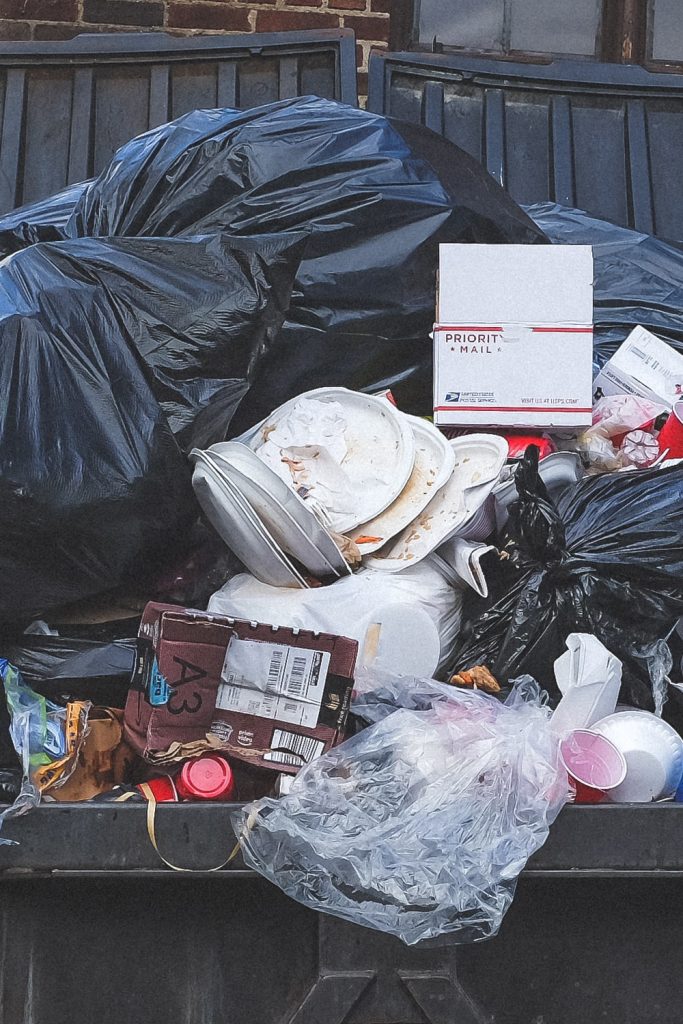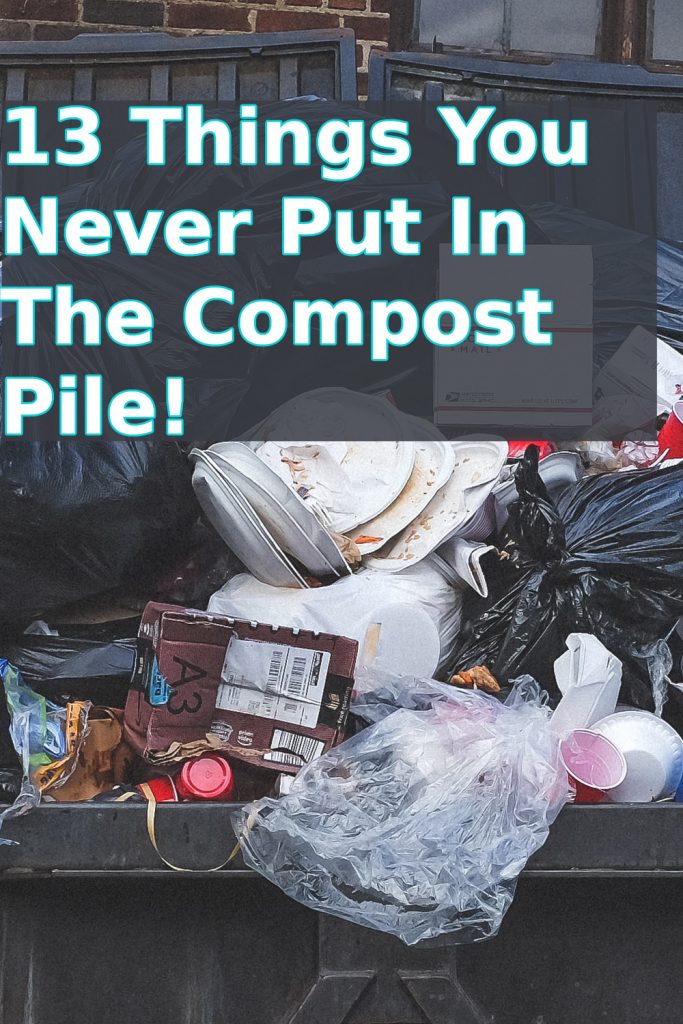Are you thinking about the things what not to compost in your backyard? You can compost most of things but you have to avoid 13 things you can’t compost. Find below!
Composting is a best way to prepare your own organic fertilizer which allows you to decompose the wastage of your garden and food wastage of your home, otherwise it will be thrown into the trash. Almost you can compost everything that is organic but there are few things that which you cant compost in large extend to avoid hassle. So find out what not to compost?

What not to compost?
1. Weeds
After cleaning the garden it might be tempted to damp the weeds and other unwanted in the bin in the spring. But keeping weeds in the pile, now that will be popping back up in the finished compost later once spread it in your garden.
In case of your pile gets consistently hot- reaches a minimum of 140 degree Fahrenheit at least 2 weeks. Weed seeds can survive to sprout another day.
And for few invasive plants like as Japanese knotweed, requires only an inch of stem to regret.
It is good to leave them out, especially those weeds that are begun to flower.
2. Diseased Plants
Plant pathogens such as powdery mildew, black spot, rust, verticillium wilt and mosaic virus can survive the composting process and infect new plants in the next season.
Like weeds, diseased plants in compost need high temperatures to kill bacteria like Fungi, viruses and parasites completely. Even so, not all pathogens can be completely eradicated.
Make better use of its safety and keep it away from the packaging.
Also Read: 10 Houseplants That Will Thrive in Your Kitchen
3. Black Walnut
All parts of Juglans nigra, including branches, leaves, roots, bark, nuts, and shell, contain an organic compound called jugalone.
Jugalone production is an evolutionary characteristic of black walnut, giving it a significant advantage over other nearby plants. Root system inhibits metabolic enzymes and destroys photosynthesis.
Apples, tomatoes, peppers, berries, asparagus and potatoes are few plants that are particularly sensitive to jugalone.
After being removed from the landscape, the jugalone will remain underground for several years.
Prevent any part of the black walnut from entering the compost pile to avoid contamination by walnut chemicals.
Also Read: 9 Best Black Succulents those are Incredibly Beautiful
4. Treated grass clippings
Excellent supplements to heap that provide nitrogen (cold) or carbon (dry).
Never put grass clippings that have been treated with insecticides, herbicides or other chemicals in the compost.
Treated grass destroys the composting process of harmful microorganisms.
To make matters worse, using finished compost for edible plants increases the toxins in the food stream.
5. Glossy paper products
Magazines, catalogs, spam, newsprint, brochures, food packaging, and glossy business cards should be included keep away from compost.
These materials are treated with a special coating to form a smooth and shiny surface. The coating is usually composed of clay minerals, but can also contain synthetic additives such as polyethylene.
The shiny products added to the pile will not degrade properly and will immerse the plastic chemicals in the finished compost.
If in doubt, please recycle any shiny materials and choose plain paper to add to the stack.
6. Cat and Dog Poop
The manure from herbivores is the best source of nitrogen and perfectly good addition of heap. Carnivores’ animals and pets poop can be strictly kept away. Omnivores can contain harmful pathogens and parasites which are not eliminate while composting. If the finished compost applied around the food plants, it will contaminate the crop which causes health hazards. Dog and cat wastage keep away from the general compost heap.
Without using landfills eager to dispose this free renewable resource, pet waste can be composted when it placed in a pile away from the vegetable patch. Once it will be cheapen, used for non-edible trees, shrubs and plants.
7. Cooking Oils
In heap don’t add cooking oil, grease and fat
Waste oil can attract rodents into open compost piles and can also disrupt the composting process itself.
A large amount of oil leakage forms a watertight barrier around the carbon and nitrogen materials in the stack, preventing water absorption and reducing airflow.
The microorganisms that destroy it need water and oxygen, so soaking a pile with edible oil will only slow down or stop the activity of microorganisms.
However, you can compost very small amounts of vegetable oil. Spilled or leftover vegetable oil should be moistened with a paper towel or newspaper before discarding.
8. Meat
Meat and fish, whether cooked or raw, will attract scavengers when they start to deteriorate. Meat can also be very uncomfortable.
Although the meat is organic and adds valuable nutrients to this pile of meat, budding composers are not allowed to throw it away.
If you tend to add a small amount of leftover meat, bury it deep in the pile and cover it with more carbon material to avoid odours in the empty pile.
You can also prevent scavenger leakage by using a compost bin with a sealed lid or using a fully insulated system such as bokashi.
Also Read: How to Start a Chicken Farm Business
9. Dairy Products
Adding a small amount of milk, yogurt, ice cream and cheese is not a big problem, but adding sour or expired dairy products to the entire container will completely change the look, feel and taste of the composting environment.
10. Latex Products
Opinions seem to be divided on whether latex products such as condoms and balloons can be added.
In theory, natural latex is completely biodegradable. Latex is obtained from flowering plants. It is a milky liquid composed of starch, sugars, resins and gums. It will coagulate when it comes in contact with air.
Balloons and condoms are a problem with composting because they are not 100% rubber. Latex and contains synthetic additives to give the final product tear resistance. Condoms may also contain other additives, such as lubricants and spermicides.
Experiments have shown that backyard balloons can last for several years. Even if you grind the latex product before adding it to the compost, you may inadvertently introduce unnatural elements into the organic compost.
11. Paraffin Wax
Animal and vegetable waxes such as beeswax and soybean wax can be added to homemade compost. Cut them into small pieces, as they may take a long time to fall apart.
Anything made of paraffin—candles, wax paper, cheese wax, etc.—should not be composted.
Because paraffin is a by-product of fossil fuels. When petroleum, coal or shale oil is refined, a waxy substance is produced. It is separated from the oil with a solvent and distilled.
You really don’t want to pile petrochemical products on your pile, so always throw paraffin-containing products in the trash.
12. Treated and Engineered Wood
The use of sawdust, shavings and chips for processing wood products is prohibited. Treated wood contains chemical preservatives or synthetic binders, which can contaminate soil and food when composted in the garden.
This includes pressurized wood and construction wood such as plywood, fiber board, particleboard and medium density fiber board. Varnished, stained, or painted wood should not be added to compost.
13. Bio-plastics
As an alternative to typical petrochemical plastics, bio-plastics made from plant materials and other renewable biomass materials are processed.
In the past decade, bio-plastics have become more common and can take many forms, from thin and flexible bio bags, envelopes, food packaging, etc., to rigid applications such as tableware, straws, water bottles and containers Packaging materials.
Bio-plastics must be compostable on paper, because they are processed from plants.
Large-scale systems can generate high temperatures for a long time, and at the same time have a perfectly balanced moisture and oxygen environment: for example, compared with traditional plastics, bio-plastics thrown into the sea take decades to decompose!
Unless bio-plastics are specifically designed and labelled for home composting, don’t pile them in a pile.

